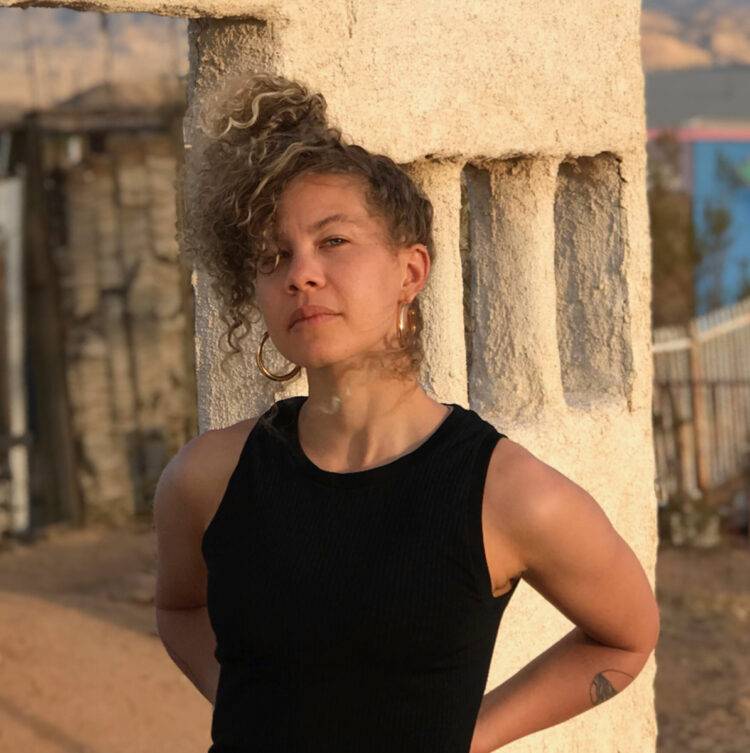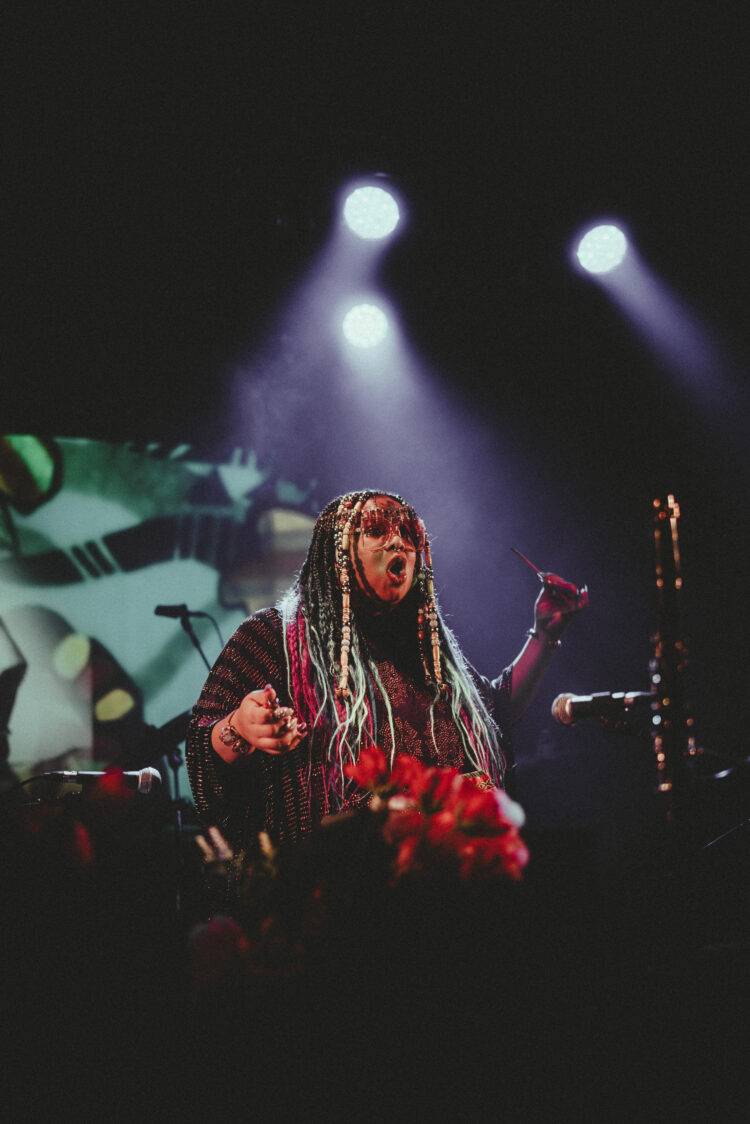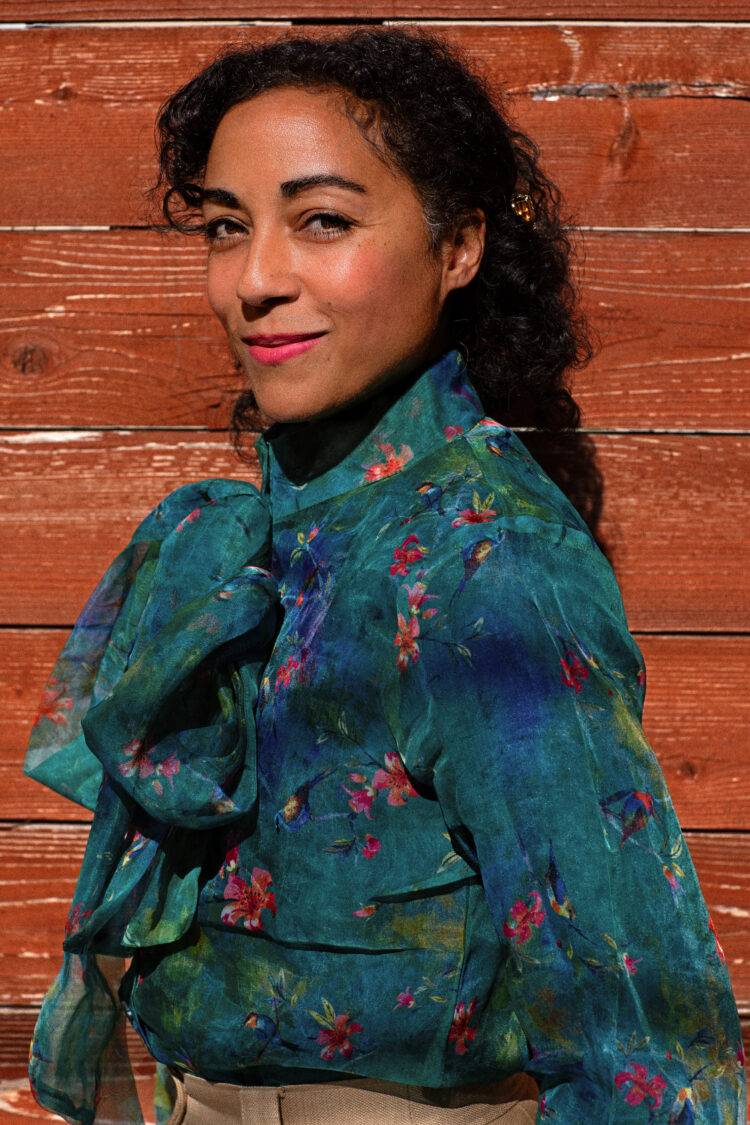What happens when artists are able to create without financial barriers? Often, financial support isn’t just about funding projects — it’s about unlocking the freedom to dream bigger and give back. Grants provide the resources artists need to sustain their creative practices and, in turn, uplift their communities. Among the most marginalized groups in America, Black women continue to exemplify resilience, and power. The 2025 United States Artists Fellowship celebrates this strength, highlighting three Illinois-based recipients whose work showcases the potential of Black women artists when given the space and resources to thrive.
This prestigious award, granted annually to artists and cultural practitioners across multiple disciplines — including music, dance, visual arts, writing, and theater — provides unrestricted $50,000 grants to fuel their creative journeys. On Jan. 30, 2025, the fellowship honored three Illinois-based artists: Angel Bat Dawid (Music Fellow), Anna Martine Whitehead (Dance Fellow), and Caroline Kent (Visual Arts Fellow).
Whitehead, an assistant professor at the School of the Art Institute of Chicago, received this grant at a pivotal moment of transition, both personally and professionally. Her past work has centered on the concept of “containment architectures,” a term she uses to interrogate spaces designed to marginalize — ranging from prisons to predominantly white institutions.

Whitehead’s multidisciplinary practice extends beyond visual art, weaving together lectures, site-specific performances, and immersive experiences that challenge audiences to reconsider how space shapes power and identity. As she closes that chapter, Whitehead is turning her focus inward, using the fellowship funds to explore personal projects connected to her family history. She plans to trace her father’s roots in Southern Virginia, delving into ancestral knowledge of medicinal herbs and examining the ties between land, labor, and survival.
This journey, however, is not without its challenges. As Nicole Ellis wrote in The Washington Post, tracing ancestry for Black Americans is often fraught due to the systemic erasure of records and the family disruptions caused by the transatlantic slave trade.
For many, standing on ancestral land remains an unreachable dream. But this grant offers Whitehead the rare opportunity to bridge that gap, enabling her to confront the history of displacement and diaspora in a deeply personal way.
“Black women are the caretakers — artists, especially Black artists, especially Black women artists, and especially queer Black women artists, being resourced is all for the good of the community. We’re always gonna be serving our communities, and the more resourced we are, the healthier the communities are,” said Whitehead.
She said this fellowship represents more than just financial support; it is an investment in a broader movement toward Black joy, care, and liberation.
“When Black women are free, everyone is free,” said Whitehead.
For composer, clarinetist, and experimental musician Bat Dawid, the fellowship offers the space to prioritize both artistic growth and holistic health.

“Part of my practice is definitely about discipline, getting up, doing the work so that it can be something that’s just second nature that you’re not thinking about — Artists get so focused on the output that they’re not focusing on their input, and they’re not focusing on being, you know, a healthy person in your mind, body, and soul,” said Bat Dawid.
Bat Dawid’s approach to craft is shaped by the dual pressures of being a Black artist at predominantly white institutions like SAIC.
“It’s always about finding your individual voice. And I don’t think that white culture wants people to have their individual voice… I think they want them [black students] to be robots, and it gets you locked into something, and it makes you insecure and question your own self,” said Bat Dawid. The U.S Artist Fellowship Award affirms her voice and fortifies her commitment to resist these pressures. “I’m gonna give it my all — 110%. And the reason — 200%.”
Kent’s abstract visual language builds a bridge between form and meaning, inviting viewers into a dialogue about perception, language, and geographies. Her large-scale paintings and installations often draw from her personal experiences and broader cultural narratives of Black American and Mexican descent. The fellowship offers her a “dream space,” allowing her to pursue projects without the guilt or pressure of justifying her work’s value. “Struggles are gonna happen. It’s not gonna look like anyone else’s. And I think that’s what I literally mean when I say trust the process. You have to trust that the right things are gonna work out and move you forward at the right time,” said Kent.

With the fellowship’s financial freedom, Kent is eager to travel to various iconic art showcases, such as the Venice Biennale. She also emphasizes wanting to have the ability to support her peers’ events and achievements as it allows for creating genuine relationships between artists, fostering collaboration and growth.
“It’s great to have support to bring something that you’ve been sitting on for a while to fruition. And being mid-career feels amazing because I have ideas in books that I have not yet realized,” said Kent. This support has allowed her to deepen her practice, ensuring her creative voice continues to evolve while empowering other artists through her teaching.
Kent’s role as an educator (she is a professor at Northwestern University) allows her to plant seeds of creativity and critical thought in her students.
“When there is a kind of generosity that comes your way, it’s hard to contain without turning and being generous elsewhere. I think that’s kind of the gift built into the gift. I’m excited to be able to turn and be generous with students, with institutions, with other fellow artists,” said Kent.
By investing in these three Illinois-based artists, the United States Artists Fellowship challenges systemic barriers that have long restricted access to opportunities for Black Americans, particularly in creative fields. It acknowledges that when Black women are resourced, they can sustain their work and imagine new possibilities for themselves and their communities, pushing the boundaries of their disciplines.
For Bat Dawid, Whitehead, and Kent, this award represents the freedom to pursue their visions without limitations and expand their creative practices on their own terms. When Black women have the freedom to dream and the autonomy to create, they not only transform their own lives — they ignite movements, shift cultural narratives, and inspire future generations.







